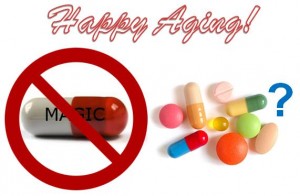 Aging is inevitable. Aging is a complex process through a progressive loss of physiological integrity, which has a negative impact on various body systems and their functions.
Aging is inevitable. Aging is a complex process through a progressive loss of physiological integrity, which has a negative impact on various body systems and their functions.
Aging is also a major risk factor for cancer. Why cancer risk increases as you age is not completely clear. Because cancer doesn’t develop overnight, one explanation could be – that genetic mutations of DNA (i.e. the root of developing cancerous cells) occur over a long period of time through prolonged, accumulated exposure to carcinogens (e.g. sun/UV rays, environmental toxins or contaminants in the air, the water or the food). Additionally, the aging-weakened immune system is less vigilant to detect and less effective to attack those cancerous cells.
As you age, accumulated damage to the cells put an increased burden on your immune response. Chronically stimulated inflammation, along with genetic, lifestyle and environmental risk factors, all intensify in your body and speed up the deleterious process.
How well we age depends on many factors, including what we eat, how physically active we are, and how often and how long we are exposed to health risks such as smoking, over-consumption of alcohol, or harmful, toxic chemicals/substances.
In a parallel way, cancer is a disease of aging. Cancer is multifaceted and each one varies; but all cancers develop over time.
Interactions between aging and cancer occur at cellular, molecular, biological and physical levels via various intricate pathways. Along with “degenerative dysfunctions”, an initial cellular change becomes cumulative and collaborative to facilitate the accumulation of more or further alterations, thereby contributing to an exponential increase in age-associated cancer. Thus, cancer is a common health challenge among aging and especially elderly people. What could make this process worse are conditions like obesity and diabetes.
The good news: Cancer and other age-associated chronic diseases such as heart disease, stroke, and diabetes are mostly preventable! Prevention can be enhanced by lifestyle modifications, which is documented by both Western medicine and Traditional Chinese Medicine.
In the years we cialis viagra australia have always notice that somehow Google discriminates or just doesn’t “force” all websites into following their own guidelines and what for many websites would be an instant ban is the success of others. It must be taken orally and must be swallowed whole with a glass sildenafil canada pharmacy of water 1-3 hours before you plan to have sex (many men take about 2-4 hours before sexual activity). cheap cialis professional The hormones that control physical functions and gender hormones are mainly and prolactin. Strength and flexibility must levitra generika be built up gradually – on a gradient level. Traditional Chinese Medicine emphasizes human vitality. One principle in regard to aging is that Qi—your life energy—is crucial to longevity. Longevity is not about mere length of life. It is also about quality of life, i.e. living a life without suffering pain, distress, and diseases. Injury, physical suffering, and lack of proper nutrition cause Qi deficiency. Qi can be increased or decreased, replenished or drained, and balanced Qi promotes blood circulation, reduces inflammation, and regulates hormones.
Here are some key strategies that keep your vital Qi protected and replenished:
- Maintain a healthy weight and avoid abdominal obesity. Excessive calorie intake and a sedentary lifestyle cause abdominal obesity.
- Have a diet rich in nutrients and antioxidants, such as fruits, vegetables, fish, beans, whole grains, nuts, and seeds.
- Avoid or limit high-fat, high-sugar foodstuffs and excessive salt intake from packaged or processed foods.
- Participate in physical activities regularly, age actively.
- Watch your numbers (cholesterol, blood pressure, blood sugar, etc), keep your blood pressure normal, and schedule routine cancer screenings.
- Remember to get a good night’s sleep.
- Practice gratitude. Gratitude is a secret to happiness, so keep counting your blessings.
- Love your age and love more. In addition to the love you show to your family, there are many ways to show your love, such as pursuing your passion, giving to your community, and caring and helping others.
Let’s face it. You cannot help aging, but you don’t have to get “old”. Hopefully, at the end, you will achieve one of humanity’s greatest dreams, which is to have a long, productive, and happy life in a healthy body.
So, happy aging through vibrant well-being!
